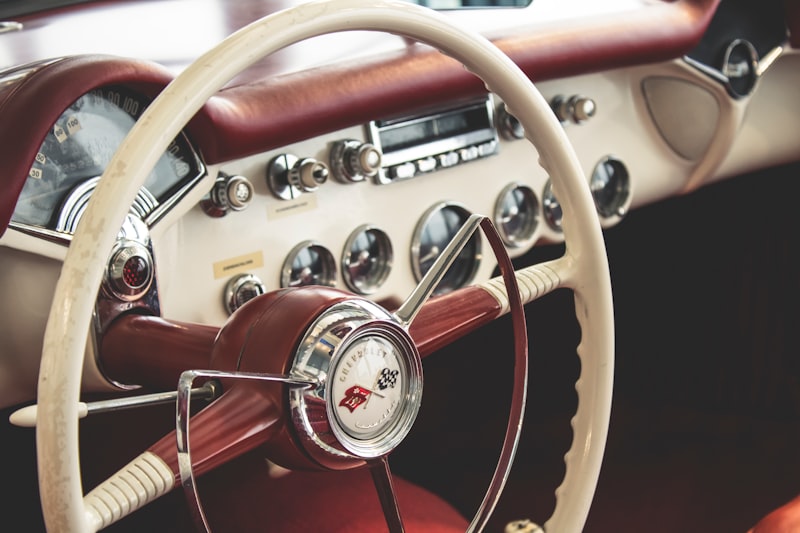
The Chevrolet Camaro is an iconic American muscle car that has captured the hearts of many enthusiasts. However, like any vehicle, there are certain years to be cautious of when considering a used Camaro. In this article, we will explore the Chevrolet Camaro Years To Avoid and discuss some of the most common problems associated with them. So, let’s dive in and discover which years might not be the best choice for your Camaro purchase.
Chevrolet Camaro Years To Avoid:
- 1982: Crossfire Injection Troubles
- 1987: Ignition Module Failure
- 1993: Opti-Spark Distributor Woes
- 2001: Transmission Issues
- 2010: Timing Chain Problems
- 2014: Ignition Switch Recall
These are just a few examples of problematic years for the Chevrolet Camaro. It’s important to note that not all models within these years will have issues, but they are known to have a higher likelihood of encountering problems. Before purchasing a Camaro from any of these years, it is advisable to thoroughly inspect the vehicle or seek the assistance of a trusted mechanic to ensure you’re making the right choice. Remember, being aware of the potential pitfalls can help you make an informed decision when it comes to buying a used Chevrolet Camaro.
1982: Crossfire Injection Troubles
The 1982 Chevrolet Camaro experienced issues related to its Crossfire fuel injection system. This system, which was new at the time, suffered from poor performance and reliability problems. The Crossfire injection setup often led to rough idling, hesitation during acceleration, and overall reduced engine performance. Consequently, this year’s model is generally considered one to avoid due to the challenges associated with the Crossfire injection system.
1987: Ignition Module Failure
In 1987, the Chevrolet Camaro encountered ignition module failure. This problem resulted in intermittent stalling and difficulty starting the vehicle. Faulty ignition modules often caused engine misfires, leading to poor performance and potential breakdowns. Due to the prevalent issues with the ignition module, it is advisable to exercise caution when considering a Camaro from this particular year.
1993: Opti-Spark Distributor Woes
The 1993 Chevrolet Camaro faced troubles with its Opti-Spark distributor. This distributor, responsible for delivering spark to the engine cylinders, had a design flaw that made it susceptible to moisture damage. Moisture intrusion could cause misfires, stalling, and even complete engine failure. As a result, the 1993 Camaro is known for its problematic Opti-Spark distributor, making it a year for buyers to approach with caution.
2001: Transmission Issues
In 2001, the Chevrolet Camaro experienced transmission problems. Some owners reported issues such as erratic shifting, slipping gears, and transmission failures. These complications not only affected the car’s performance but also led to potentially costly repairs. It is important to be aware of these transmission concerns when considering a 2001 Camaro purchase.
2010: Timing Chain Problems
The 2010 Chevrolet Camaro encountered timing chain problems. Premature wear and eventual failure of the timing chain were reported by some owners. A malfunctioning timing chain can cause severe engine damage, including bent valves and piston interference. This issue necessitates expensive repairs and may result in the vehicle being inoperable. Prospective buyers should exercise caution when considering a 2010 Camaro due to its timing chain concerns.
2014: Ignition Switch Recall
In 2014, the Chevrolet Camaro was affected by an ignition switch recall. The faulty ignition switch could inadvertently move out of the “run” position, leading to the loss of power steering, brakes, and airbag functionality. This safety concern prompted a recall to rectify the issue. It is crucial to verify that any 2014 Camaro under consideration has had the necessary repairs performed to address this ignition switch defect.
These troubled years highlight specific issues that have been associated with the Chevrolet Camaro. While not all vehicles within these years will experience problems, it is essential to be aware of the potential challenges before making a purchase decision. Thoroughly inspecting the vehicle or seeking the assistance of a knowledgeable mechanic can help ensure a wise choice when buying a used Chevrolet Camaro.
Important Points to Know
- The Chevrolet Camaro has certain troubled years that buyers should be cautious of when considering a used model.
- The 1982 Camaro had issues with its Crossfire fuel injection system, leading to poor performance and reliability problems.
- The 1987 Camaro experienced ignition module failure, resulting in stalling and starting difficulties.
- The 1993 Camaro faced troubles with its Opti-Spark distributor, leading to misfires and potential engine failure.
- The 2001 Camaro encountered transmission problems, including erratic shifting and transmission failures.
- The 2010 Camaro had timing chain problems, which could cause severe engine damage.
- The 2014 Camaro was subject to an ignition switch recall, affecting power steering, brakes, and airbag functionality.

Final Words
In conclusion, while the Chevrolet Camaro holds a special place in the hearts of many car enthusiasts, it is crucial to exercise caution when considering specific years. The troubled years mentioned in this article indicate potential challenges such as fuel injection issues, ignition module failures, distributor problems, transmission complications, timing chain concerns, and ignition switch recalls. By being aware of these problematic years and their associated problems, prospective buyers can make informed decisions and avoid costly repairs. Remember to thoroughly inspect the vehicle or seek professional assistance to ensure a smooth and enjoyable ownership experience with your Chevrolet Camaro.
